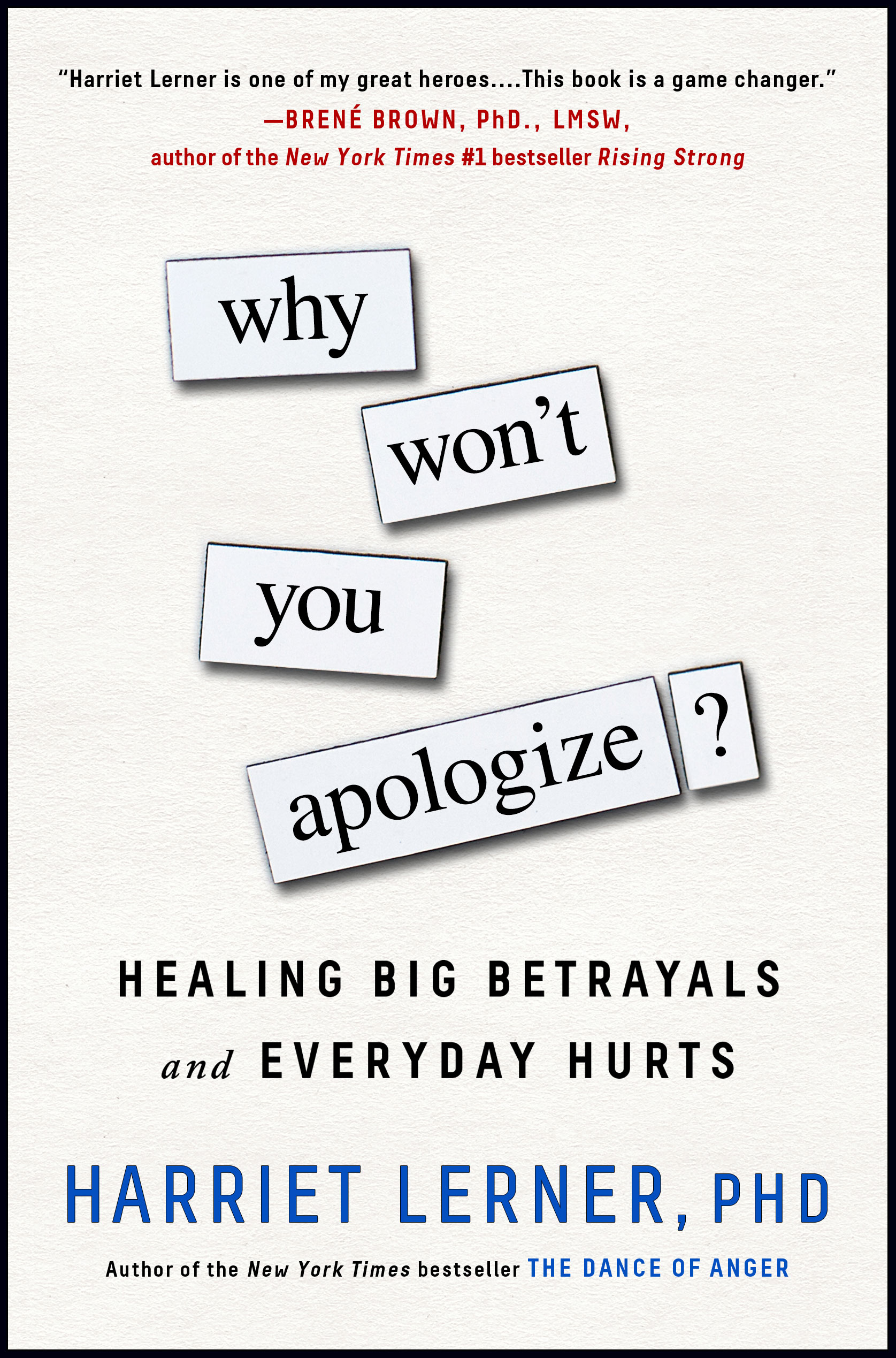
The New Year brings the promise of new beginnings and fresh starts. So in the spirit of embracing courageous acts of change as we enter 2017, I have a challenge for you. It’s difficult, but it’s worth it.
Learn to apologize. The wholehearted apology is the greatest gift you can give to the hurt party, the relationship and yourself. Since we’re wired for defensiveness (meaning we’ll automatically muck it up), it takes resolve, motivation and good will to get apologizing right.
The formula for a good-enough apology is pretty straightforward: it includes a heartfelt “I’m sorry” along with a clear expression of responsibility and remorse for our hurtful words and actions while offering reparations if necessary and a commitment to avoid a repeat performance. This is easy to do if, say, we’ve spilled red wine on our best friend’s couch. With certain people, however, (like family members) the complex dance of apology and repair can quickly go south.
With my husband Steve, for example, I like to apologize for exactly my share of the problem as I calculate it, and I expect him to apologize for his share, also as I calculate it. Since we don’t always do the same math, we can easily slip into a “who’s more to blame” or “who started it” mentality.
“I apologize for my part of this fight,” I announce to Steve since I suspect he won’t talk to me until I apologize.
“And what do you think your part is?” he asks testily.
“Forty percent,” I say. True, I approached Steve in a rude manner, but he was reactive and blew the whole thing out of proportion. I’ve concluded that his reactivity is definitely worse than my initial rudeness.
“Well,” Steve retorts, “that’s not good enough.” Round and round we go, sounding like idiots even to ourselves. Of course, on my better days, I avoid such a scenario. I apologize for my part without bringing up his crime sheet, and I don’t participate in the downhill slide. But keep in mind that it’s in our most enduring and significant relationship that we can easily become too angry to apologize.
Resolve to be the one to apologize first. “I’m sorry for my part” is a good first step. “I’m sorry, I was wrong, I won’t do it again” is even better, if sincerely spoken. But the most difficult apology to offer is when the other person is blasting you with criticism you feel is unfair and exaggerated, while taking no responsibility for his or her own part. Here we all automatically move into fight-or-flight mode and get stuck in distance and blame.
Humans are hard-wired for defensiveness, and no one is immune. When we’re being criticized by someone who wants an apology, we automatically listen for the inaccuracies, distortions and exaggerations that will inevitably be there. The heartfelt apology requires that we resolve to listen differently—that we listen only for what we can agree with—and we apologize for that first. This means staying curious about the other person’s experience without interruptions, arguments, correcting facts, or bringing up our own criticisms and complaints. Better to save our differences for another conversation, when they can be a focus of conversation and not a defense strategy.
Words of apology, no matter how sincere, will not heal a broken connection if we haven’t listened well to the hurt party’s anger and pain. How we listen determines how our relationships go and whether the other person wants to see us at the end of the day.
Start small. Put your toes in the water and practice saying “I’m sorry, I was wrong” when you screw up, which you will. We are imperfect human beings and we all hurt others, just as we are hurt by them. The need to give and receive apologies is with us until our very last breath.
If you’re up for the most difficult apology challenge, resolve to practice wholehearted listening. Open your heart and put aside your defensiveness when the critical party is saying things that you don’t agree with and don’t want to hear. Instead, let her voice and her pain affect and influence you. If you can only agree with 7% of what you are hearing, start by apologizing for that.
The apology isn’t the only chance you get to address an issue. The apology is the chance you get to lower the intensity, move forward with good will, and establish common ground for future conversations. If we could listen with the same passion that we feel about wanting to be heard, all of our apologies would be meaningful—and all of our relationships would benefit. It’s hard to imagine a New Year’s resolution more important than that.
More Must-Reads From TIME
- The 100 Most Influential People of 2024
- The Revolution of Yulia Navalnaya
- 6 Compliments That Land Every Time
- What's the Deal With the Bitcoin Halving?
- If You're Dating Right Now , You're Brave: Column
- The AI That Could Heal a Divided Internet
- Fallout Is a Brilliant Model for the Future of Video Game Adaptations
- Want Weekly Recs on What to Watch, Read, and More? Sign Up for Worth Your Time
Contact us at letters@time.com